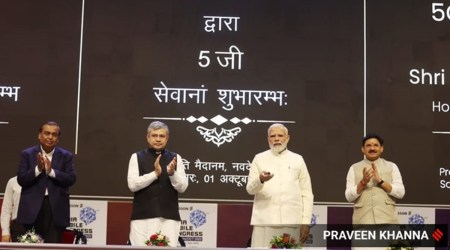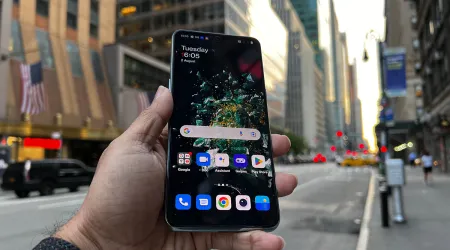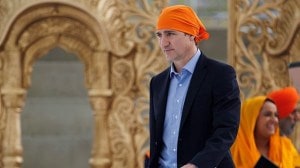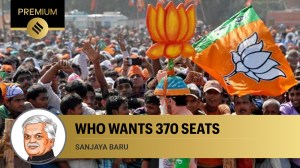- India
- International
Facebook Free Basics vs Net Neutrality: The top arguments in the debate
On Twitter, there's a whole conversation around Facebook Free Basics and whether zero-rating platforms should be allowed in India. Here's a look at the debate.
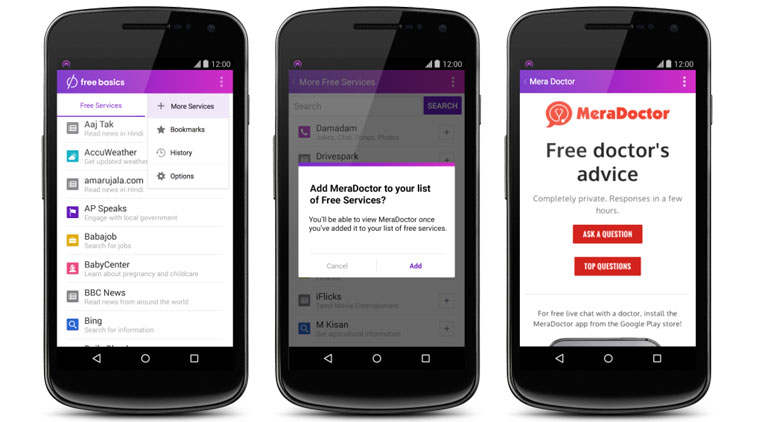 Facebook Free Basics has been put on hold in India, till TRAI takes a decision on zero-rating apps.
Facebook Free Basics has been put on hold in India, till TRAI takes a decision on zero-rating apps.
Facebook’s Free Basics app, which aims to provide ‘free Internet access’ to users who can’t afford data packs, has run into trouble in India over the last two weeks. After regulator TRAI issued a paper questioning the fairness of zero-rating platforms, it also asked Reliance Communications (the official telecom partner for Free Basics) to put the service on hold.
Facebook on its part has gone for an aggressive campaign, both online and offline, to promote Free Basics and ensure that its platform is not banned permanently. For Net Neutrality activists, zero-rating platforms are in violation of the principle as it restricts access to free, full Internet for users.
On Twitter too, there’s a serious debate unfolding around Free Basics and whether zero-rating platforms should be allowed in India. Here’s a look at some of the prominent voices around this Net Neutrality vs Free Basics debate.
Nikhil Pahwa, founder of news website MediaNama, has been campaigning for quite some time against zero-rating platforms in general and Net Neutrality. On Twitter, Pahwa points out that the problem with the zero-rating apps is that it gives telecos right to play kingmaker, and get into a direct relationship between a website and a user.
Pahwa also wrote a counter-blog to Mark Zuckerberg’s column in The Times of India questioning why Facebook is going with this restricted version of the web on Free Basics, rather than giving access to all websites.

He posted recently on Twitter, “Why hasn’t Facebook tried any model other than on which gives it a competitive advantage?”
Pahwa adds, “With zero rating, telcos insert themselves into a previously direct relationship between a site and user. Some sites made cheaper versus others. Said it earlier, saying it again. Problem with zero rating is that it gives telcos the right to play kingmaker through pricing. So Net Neutrality battle isn’t just about Facebook. It’s about telcos lobbying for differential pricing+revenue share from Internet companies.”
Check out some of this tweets on the issue of Net Neutrality:
Why hasn’t facebook tried any model other than on which gives it a competitive advantage? https://t.co/vPjkshpm4M
— Nikhil Pahwa (@nixxin) December 29, 2015
Said it earlier, saying it again. Problem with zero rating is that it gives telcos the right to play kingmaker through pricing.
— Nikhil Pahwa (@nixxin) December 29, 2015
With zero rating, telcos insert themselves into a previously direct relationship between a site &user.Some sites made cheaper versus others.
— Nikhil Pahwa (@nixxin) December 29, 2015
So NetNeutrality battle isn’t just about facebook. it’s about telcos lobbying for differential pricing+revenue share from Internet companies
— Nikhil Pahwa (@nixxin) December 27, 2015
Vishal Misra, Professor of Computer Science at Columbia University has also been a vocal critic of Free Basics app. He’s also been debating about the platform with Facebook’s VP for Global Corporate Communications, Michael Buckley on Twitter.
Misra has questioned Facebook on what they will do with personal information collected with Free Basics, whether they would allow a Google or Twitter to join the platform. He’s also asked if the service will be restricted only to those who can’t afford Internet data packs.
He wrote on Twitter, “Such admirable concern for the poor unconnected. Can we make FreeBasics unavailable for people with data plans? After all if people can already afford it then they don’t need FreeBasics and for the unconnected who upgrade, purpose has been served.”
Check out his tweets below:
This is what I got from @MikeatFacebook Hoping for these to appear in an official FB statement pic.twitter.com/yQYLsSBuAz
— Vishal Misra (@vishalmisra) December 28, 2015
Such admirable concern for the poor unconnected. Can we make FreeBasics unavailable for people with data plans?(1/n) https://t.co/3hxWi49r9n
— Vishal Misra (@vishalmisra) December 27, 2015
After all if people can already afford it then they don’t need FreeBasics and for the unconnected who upgrade, purpose has been served (2/2)
— Vishal Misra (@vishalmisra) December 27, 2015
Advertisement
Michael Buckley, Facebook’s global corporate communications head, has also been actively defending Free Basics on Twitter. He pointed out that the service does not keep personal information of users after 90 days and that Facebook will welcome other rival networks to join the platform.
Buckley also said that Google was, in fact a Free Basics partner in Zambia, when it was launched and that there is data to show that those who come online via Free Basics do move on to using the full Internet space.
Also read: Facebook Free Basics controversy: Here’s what has happened so far
Mike wrote on Twitter, “Free Basics opens up full internet for many. Globally-50% move to full net in 30 days. Data should win the argument.” On improving Internet access for all, Mike also says that it can’t be left to just governments and that one needs to look at “public and private” models “to make faster gains.”
Another of his tweet notes, “Vast majority of definitions of NN (Net Neutrality) in countries allow zero rating. And program facts prove bridge to full net.”
@abhaga @janchip free Basics opens up full internet for many. Globally-50% move to full net in 30 days. Data should win the argument.
— MikeatFacebook (@MikeatFacebook) December 29, 2015
@srinikth @pranesh @jackerhack can government solve it all? Of course not. Must have public and private to make faster gains.
— MikeatFacebook (@MikeatFacebook) December 29, 2015
@srinikth @pranesh @jackerhack why does it have to be philanth to be good. It brings full net. Oh and we make no money til conversion. Zero
— MikeatFacebook (@MikeatFacebook) December 29, 2015
@vishalmisra not misleading. Vast majority of definitions of NN in countries allow zero rating. And program facts prove bridge to full net
— MikeatFacebook (@MikeatFacebook) December 28, 2015
@PZarandy @vishalmisra @pratik_shah EU rules allow ZR on case by case basis. Yes.
— MikeatFacebook (@MikeatFacebook) December 28, 2015
Pranesh Prakash, the director for policy at Centre for Internet and Society (CIS) in Bangalore, has said that a total ban might not be the ideal solution and one should look at the platforms on a case by case basis.
He writes on Twitter, “My position: We should ban some zero-rating, allow some zero-rating, and deal w/ middle category either w/ +ve obligation or case-by-case. I’m all for banning Free Basics if it harms people more than it benefits them. I’ve even proposed tests for determining this. The regulator needs more data on a) conversion rates to full-Internet; b) cost of subsidy & c) QoE (speed, etc.) of Free Basics.”
Check out Pranesh’s tweets below
1. My position: We should ban some zero-rating, allow some zero-rating, and deal w/ middle category either w/ +ve obligation or case-by-case
— Pranesh Prakash (@pranesh) December 26, 2015
2. I’m all for banning Free Basics if it harms people more than it benefits them. I’ve even proposed tests for determining this.
— Pranesh Prakash (@pranesh) December 26, 2015
3. The regulator needs more data on a) conversion rates to full-Internet; b) cost of subsidy & c) QoE (speed, etc.) of Free Basics.
— Pranesh Prakash (@pranesh) December 26, 2015
A pref alternative to #FreeBasics is for govt. to require all mobile ISPs to provide free Internet for all at a min. quality, offset by USOF
— Pranesh Prakash (@pranesh) December 28, 2015
Sunil Abraham, executive director at Centre for Internet and Society, has however questioned Free Basics on Twitter. He also posted counter-points to Pranesh’s tweets about data on conversion being used to create regulations around zero-ratings. He’s also called for a ban on Free Basics.
@pranesh Could you explain how you would arrive at regulatory decisions based on those data points?
— Sunil Abraham (@sunil_abraham) December 27, 2015
@sunil_abraham Regulators can say, “this violation of neutrality isn’t justified, as benefits can be enjoyed via non-violative schemes”.
— Pranesh Prakash (@pranesh) December 27, 2015
Initially I was reluctant to advocate for bans but then Facebook started terminology capture https://t.co/lZ5o0jdM48 #India #NetNeutrality
— Sunil Abraham (@sunil_abraham) December 25, 2015
Advertisement
Also read: Net Neutrality debate: TRAI aims to resolve some issues by early 2016
Read our full Net Neutrality coverage here.
More Tech
Apr 29: Latest News
- 01
- 02
- 03
- 04
- 05












